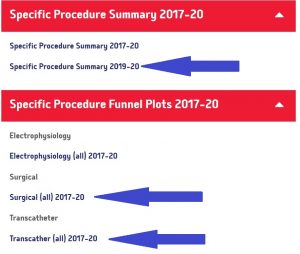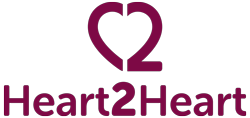NICOR CCAD database
This website has been designed with the help of parents and families from the Children’s Heart Federation (CHF) and aims to help people make sense of published survival data about children’s heart surgery in the UK and Northern Ireland.
Understanding Children’s Heart Surgery Outcomes
What is the purpose/aim of the portal?
The Health and Social Care Information Centre (HSIC) has developed the Congenital Heart Disease Portal to:
- Give parents and carers of heart children information on procedures and types of surgery used to treat congenital heart conditions so that they can make informed choices about their child’s care and treatment. The portal provides information on the number of procedures (or operations) that have been carried out at each of the congenital heart disease centres in the UK. It also provides the rates of survival for the most common types of congenital heart surgery and catheter procedures.
-
Monitor the results for individual centres and ensure that their outcomes for particular procedures are not statistically poorer than average. If this does happen, a detailed examination of the centre’s results would take place, and procedures put into action if the concerns are confirmed.
Performance at individual centres and for individual conditions
Information about the performance of heart surgery centres is available through the NICOR CCAD database.
You will probably need to scroll down to get the information you need, the following headings could be helpful.
If you have any questions, please contact 0203 765 8542 or email
nicor-generalenquiries@bartshealth.nhs.uk
How do I use this information?
You may find it useful to discuss the rates of survival for a particular procedure at a particular hospital with your/your childs surgeon or cardiologist before making a decision about care and treatment. However, it is important to note that this should not be the only information you should consider before making a decision about your/ your child’s heart surgery. We would advise you to discuss any decision you need to make with your cardiologist.
Other Questions
What should I do if I am concerned about the figures I have seen?
If you are concerned about any of the figures you see, you can phone the CCAD helpdesk on 0845 300 6016 or email them at helpdesk@ccad.org.uk. You can also call the Children`s Heart Federation helpline on 0808 808 5000 and we will try our best to help you with your concerns. Finally, you can also speak to your child’s cardiologist who may be able to answer more specific questions about their centre’s surgery figures.
Who can I contact to find out more about what the figures mean for my childs treatment?
You can phone the CCAD helpdesk on 0845 300 6016 or email them at helpdesk@ccad.org.uk to discuss how to interpret the figures and understand what they mean. You may also find it useful to discuss the rates of survival for a particular procedure at a particular hospital with your child’s surgeon or cardiologist before making a decision about care and treatment.
Where can I get more detailed information about heart conditions and the different procedures?
There is some information on the portal under the Glossary section (link on top left of the screen). You can also find information on some of the common heart conditions and their treatment on the Children`s Heart Federation website www.chfed.org.uk.
How do I arrange for my child to be treated at a different unit?
If you are unhappy for your child to be treated at a specific centre, you can seek a second opinion from a different cardiologist/surgeon at a different centre.
You can get a second opinion for your child by asking your GP or cardiologist to refer you to a different unit. The British Medical Association (BMA) advises doctors that they should respect a patient’s wish to obtain a second opinion unless there are justifiable reasons for refusal, e.g. that the patient might come to harm as a result. They also advise that requests for a second opinion be handled sensitively and wherever possible dealt with by the consultant. Patients should not be made to feel a nuisance or a bad patient.











